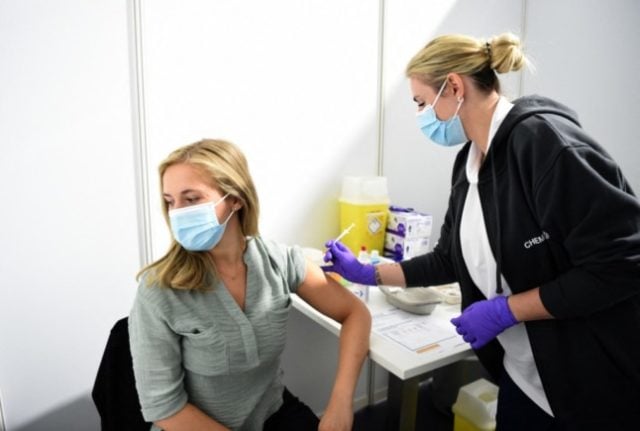Germany will soon have so many Covid-19 vaccinations that it will be able to give them out to passers-by in city centres and in places of worship, health officials stated on Saturday.
Speaking at a televised discussion on the health situation in Germany, Spahn said the country needed to fast-forward its vaccination rollout as the Delta variant spreads throughout Europe, reported Reuters.
According to Spahn, “By the end of July, every adult in Germany who wants to be vaccinated will also be able to receive a first vaccination. If deliveries continue like this, perhaps even a little earlier,” quoted German broadcaster ZDF.
READ ALSO: ‘This can be a good summer’: Half of Germans vaccinated at least once against Covid
The German government intends to deliver 5 million doses to vaccination centres across the country in the first week of July, he added.
Further to that, the health minister indicated that the pharmaceutical company Moderna is expected to double the doses it had pledged.
The drugmaker plans to provide some 5.32 million vaccine doses in July, 10.28 million in August and as many as 14.5 million doses in September, reported news broadcaster Deutsche Welle.
In the coming week, 5 million doses from the British-Swedish vaccine producer AstraZeneca and one million doses from the US producer Johnson & Johnson are to be delivered to vaccination centres in the country as well as to doctors, it was announced. A large delivery from BioNTech is also pending.
READ ALSO: Share of Delta variant Covid cases in Germany almost doubles in a week
There are hundreds of thousands of vaccines by AstraZeneca and Johnson & Johnson not being used up immediately, according to the health minister.
On Saturday, Spahn tweeted that Germany was ahead of Great Britain for the first time, in terms of the absolute number of people vaccinated.
Mehr als 71,4 Mio COVID-19-Impfungen in 🇩🇪 bis heute: 44,3 Mio Bürgerinnen und Bürger (53,3%) sind mindestens einmal geimpft, mehr als jede(r) Dritte (34,8% / 28,9 Mio) hat den vollen Impfschutz. Damit liegt 🇩🇪 bei der absoluten Zahl der Erstimpfungen erstmalig vor 🇬🇧.
— Jens Spahn (@jensspahn) June 26, 2021
Over half of people in Germany, 53.3%, have received at least one dose and more than a third (34.8%) are now fully vaccinated, the tweet read.
The president of public health agency, the Robert Koch Institute (RKI), Lothar Wieler, joined in the discussion to echo the need to increase vaccination administration.
He said this was the “most powerful tool” against the pandemic.
READ ALSO: ‘Vaccinate quickly’: German states seeing surge in Delta variant Covid cases
“We are talking about more than 80 percent of the people living in our country,” Wieler said when asked how many people needed to be vaccinated.
“We need to reach that figure so we have basic protection,” he added.
Although the health situation is improving in Germany, the share of Delta variant Covid infections among new cases in the country is rising.
Spahn said the outbreaks of the Delta variant in Britain and Israel showed the need for Germany to ramp up their vaccination campaign.
A single vaccine dose has been found to offer low protection against the Delta variant, so German experts are looking to shorten the gap between the two doses in order to mitigate the risks.
Spahn also indicated that it’s also up to individual responsibility to stem outbreaks and avert a fourth wave.
“We have it in our own hands, each and every one of us and we as a society, that this good summer, which it can become, firstly remains good and secondly autumn and winter become just as good,” he said.



 Please whitelist us to continue reading.
Please whitelist us to continue reading.
Member comments